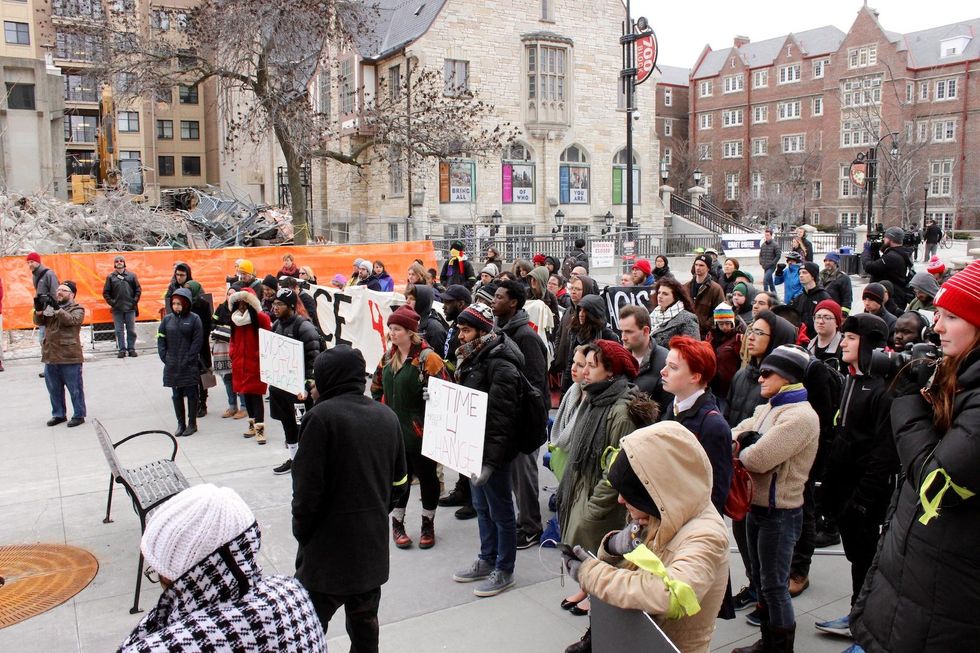
About 100 people gathered on the University of Wisconsin-Madison campus Friday, March 4, 2016, to protest the fatal police shooting of 19-year-old Tony Robinson one year ago. They held a rally on Library Mall before marching to the state Capitol. (AP Photo/Bryna Godar)


